UK spy watchdog 'taken in' by security agencies - MP
- Published
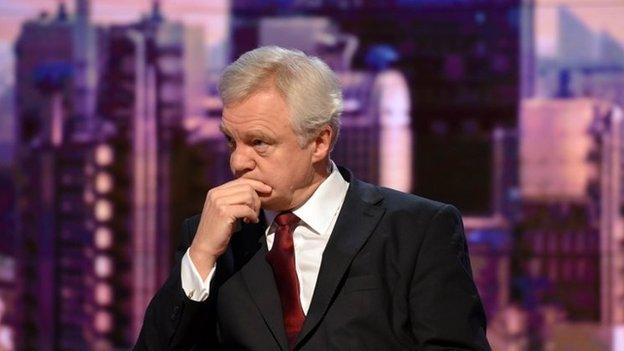
David Davis claims the committee is not taken seriously by UK spies
The committee monitoring the security services has been taken in by the "glamour" of spying and is failing to do its job, its founder has said.
Conservative MP David Davis said the Intelligence and Security Committee had been "captured by the agencies they are supposed to be overseeing".
And ex-chairman Sir Malcolm Rifkind acted as a "spokesman" for MI5, MI6 and GCHQ rather than a watchdog.
Sir Malcolm said the criticisms were "ludicrous" and had no basis in fact.
He said Mr Davis had been "captured" by the civil liberties lobby.
'Excited by it'
Sir Malcolm was this week forced to step down as chairman of the committee after five years over "cash-for-access" claims.
He will carry on as a committee member until the election in May, when he will step down as an MP.
The Tory MP and Labour MP Jack Straw were secretly filmed apparently offering their services to a private firm for cash. Both deny wrongdoing.
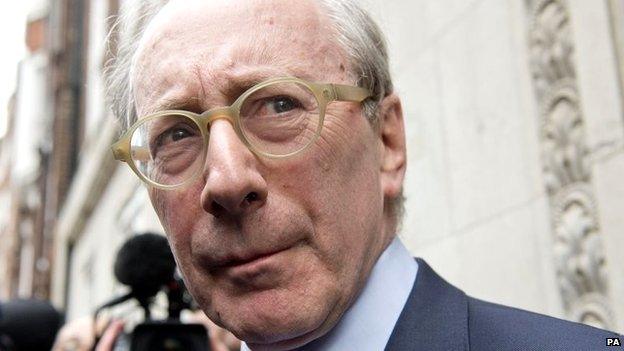
Sir Malcolm says the committee now has more teeth
In an interview for BBC Radio 4's Yesterday in Parliament, to be aired at 2330 on Friday, Mr Davis said members of the security services had told him privately that they "have never taken the ISC seriously, saying 'well they only know what we tell them'".
He said security committees around the world were prone to fall into the same trap as the ISC.
"What sort of people join an Intelligence and Security Committee? They approve of what the agencies are trying to do, as do most of us.
"But they are excited by it and they get taken in. It is a very glamorous world and they feel privileged to be inside it so there is a tendency to capture."
Rigby murder
He added: "To date the [ISC] chairman has acted almost invariably as a spokesman for the spooks rather than as a critical friend."
Mr Davis was the home office minister who in 1994 piloted the bill setting up the ISC through Parliament, as part of Conservative Prime Minister John Major's efforts to open up the security services to greater scrutiny and oversight.
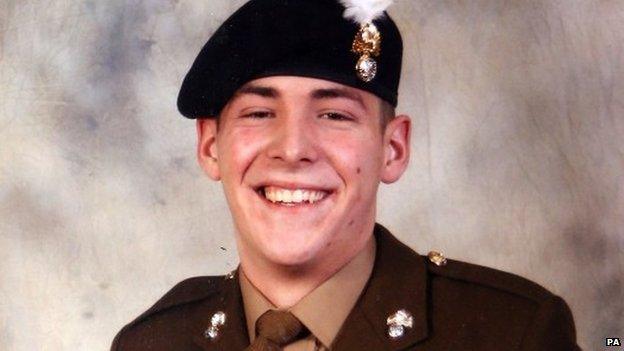
Fusilier Rigby was killed on 22 May last year
But he said it had not developed the teeth he had expected it to - and it too often acted as an apologist for the security services, citing the revelations by US whistleblower Edward Snowden about the extent of spying by CGHQ as an example.
Sir Malcolm "found himself time and again justifying it, saying it is legal and they are acting within the law. Whether it is right or wrong, I don't even think he knew himself," said Mr Davis.
"He should be calling in the head of the agency and saying 'why wasn't I told about this?'"
He also criticised the committee's report into the murder of Fusilier Lee Rigby, which said it could not have been prevented despite his killers appearing in seven intelligence investigations.
"It was really pretty clear a lot of mistakes were made and yet the ISC report ends up blaming the internet company," said the MP.
Claims 'absurd'
The former shadow home secretary said he would be launching a campaign to allow the chairman of the ISC to be elected by a secret ballot of MPs, as is the case with normal select committees.
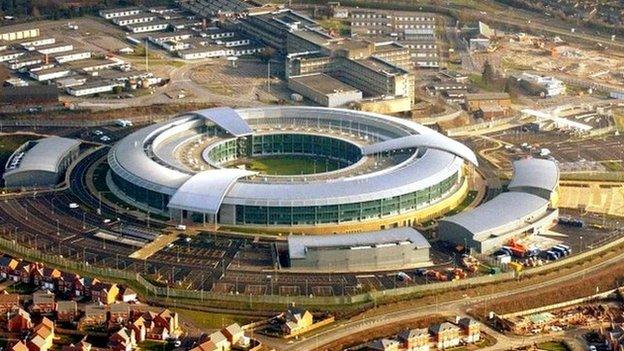
GCHQ is at the centre of allegations by US whistleblower Edward Snowden
At the moment, the chairman is chosen by committee members who have been nominated by the prime minister.
Sir Malcolm said Mr Davis' accusations of "capture" were "absurd" and the committee, which is made of a cross-party group of MPs and peers, had gained considerable new powers under his chairmanship and was fully independent.
He told the BBC News website: "Our job is to criticise the intelligence agencies when they do something wrong or stupid and we do.
"If the evidence says they are not responsible then we point that out too."
In the case of the Lee Rigby murder, he said the committee's report , externalcontained much criticism of the security agencies but the key piece of evidence that might have stopped the attack was an exchange on Facebook which the spies did not have access to.
Sir Malcolm said that the committee's powers had been beefed up by the 2013 Justice and Security Bill and the security services now had a legal obligation to provide material to the committee.
It could also "examine their files in the middle of their own headquarters, which it had done at GCHQ, and also had the power to investigate operations, something it had been prevented from doing in the past.
Listen to the full interview with David Davis and Sir Malcolm Rifkind on Yesterday in Parliament at 2330 on BBC Radio 4.
- Published24 February 2015
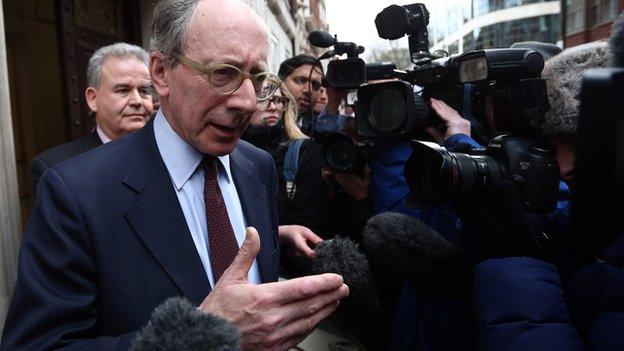
- Published25 November 2014
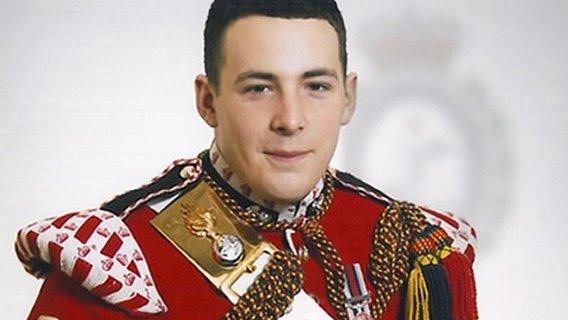
- Published17 July 2013
